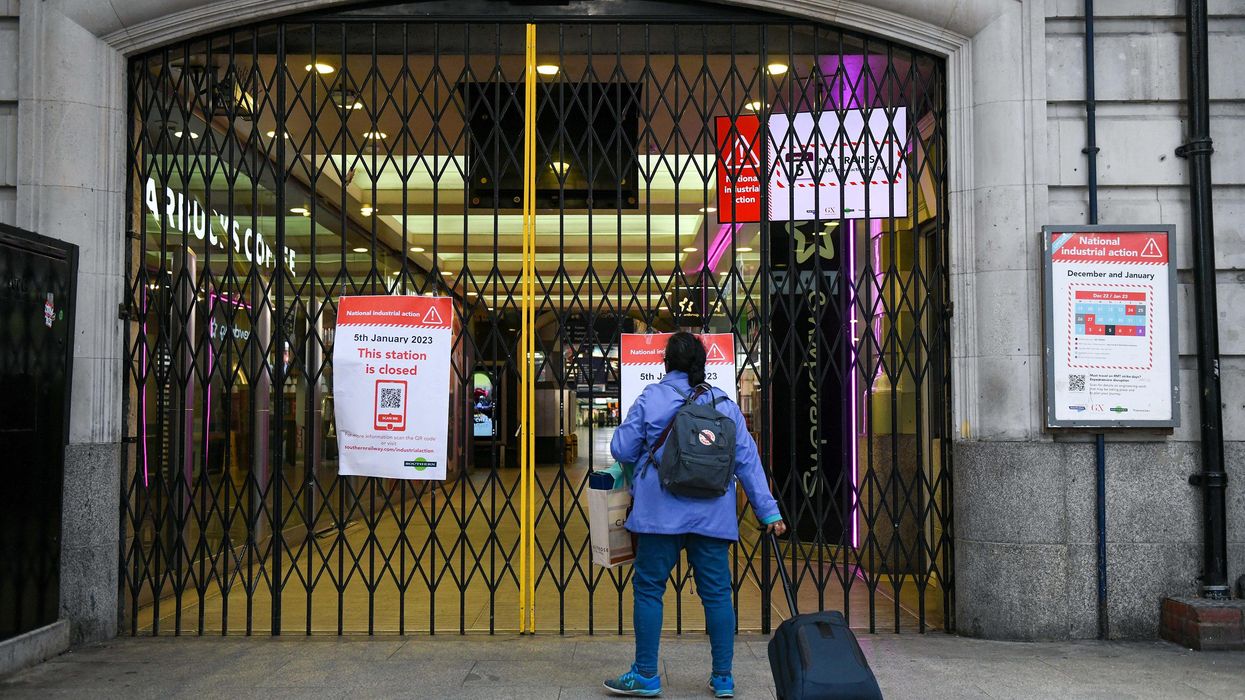(CNN) — The UK government is planning to introduce a new law forcing workers in key public sectors such as ambulance services to maintain a basic level of service during strike action or risk dismissal.
In a statement on Thursday, the government said it would introduce a bill in parliament in the coming weeks to set minimum safety levels for fire, ambulance and rail services.
The new law, which would force a certain percentage of workers to keep coming to work on strike days, could also affect nurses, teachers, and immigration officers. Workers who strike after they have been told to report to work by their employer and union could face dismissal.
"As well as protecting the freedom to strike, the government must also protect life and livelihoods," said business secretary Grant Shapps.
"While we hope that voluntary agreements can continue to be made in most cases, introducing minimum safety levels — the minimum levels of service we expect to be provided — will restore the balance between those seeking to strike and protecting the public from disproportionate disruption," Shapps added.
The announcement follows the worst industrial unrest the UK economy has seen in years. Workers are facing a sharp fall in living standards and are demanding higher wages in the face of record inflation.
Walkouts by rail workers this week disrupted the post-holiday return to offices with several major train lines providing no services at all on Thursday after drivers walked out.
Strike action in recent months has disrupted the railways, schools, hospitals, and postal service. The Royal College of Nursing staged the first nationwide strike in its 106-year history last month.
Critical care was exempt from the nurses' strike, and unions pledged to cover life-threatening emergencies during recent walkouts by ambulance workers.
The new bill also covers health services, education, nuclear decommissioning, border security, and other transport services. The government said that it will impose minimum safety levels in these areas only if "voluntary agreements" cannot be reached.
The government said it would invite labor unions to discuss "what is fair and affordable" in public sector pay settlements for the next financial year starting in April, noting that inflation-matching pay awards risk pushing prices up even further. It called on unions to cancel upcoming strikes in the meantime in favor of "dialogue."
But unions may be less amenable to the government's offer of talks after Thursday's announcement.
"Trade unions will fight this every step of the way," the Trades Union Congress, which represents 48 UK unions, said on Twitter. It said that the new "anti-strike legislation" is "wrong, unworkable, and almost certainly illegal."
The opposition Labour Party is also opposed to the proposed legislation and said it will reverse it entirely if it wins the next general election.
"We'll look at what they bring forward but if it's further restrictions then we will repeal it," Labour leader Keir Starmer said in response to questions from journalists at an address earlier on Thursday.
"I do not think that legislation is the way that you bring an end to industrial disputes. You have to get in the room and compromise," Starmer added.
The-CNN-Wire
™ & © 2023 Cable News Network, Inc., a Warner Bros. Discovery Company. All rights reserved.
- Why Thousands of Amazon Workers Around the World Striked for Black Friday ›
- Britons Urged to Avoid Risky Activity as Paramedics Join Labor Strikes ›
- 100,000 UK Nurses Set to Strike Over Poor Pay and Working Conditions ›
- New York Nurses to Stage Historic Strike - Advocate Channel ›
- Over 7,000 Nurses Strike in New York City - Advocate Channel ›
- UK Government Blocks Scotland's New Gender Recognition Law ›


















































